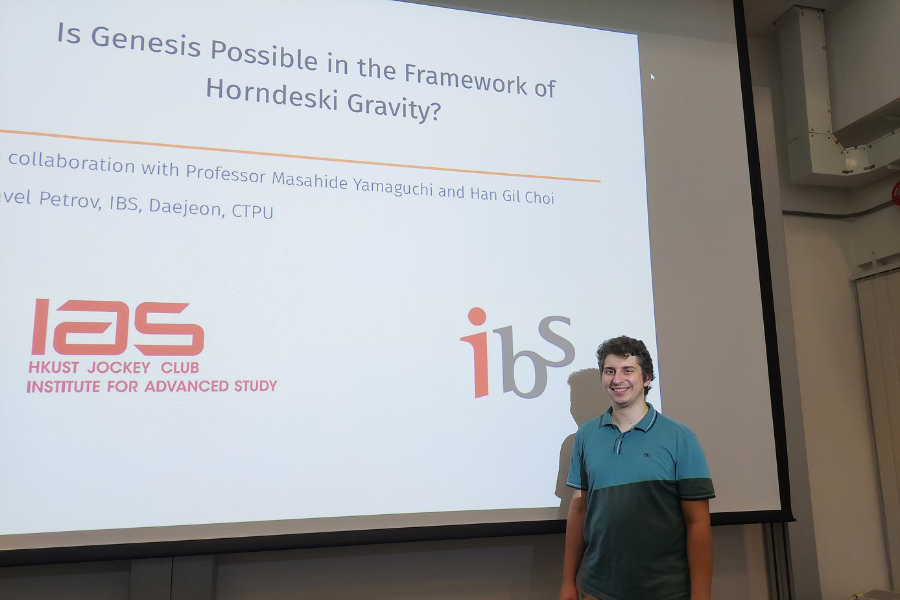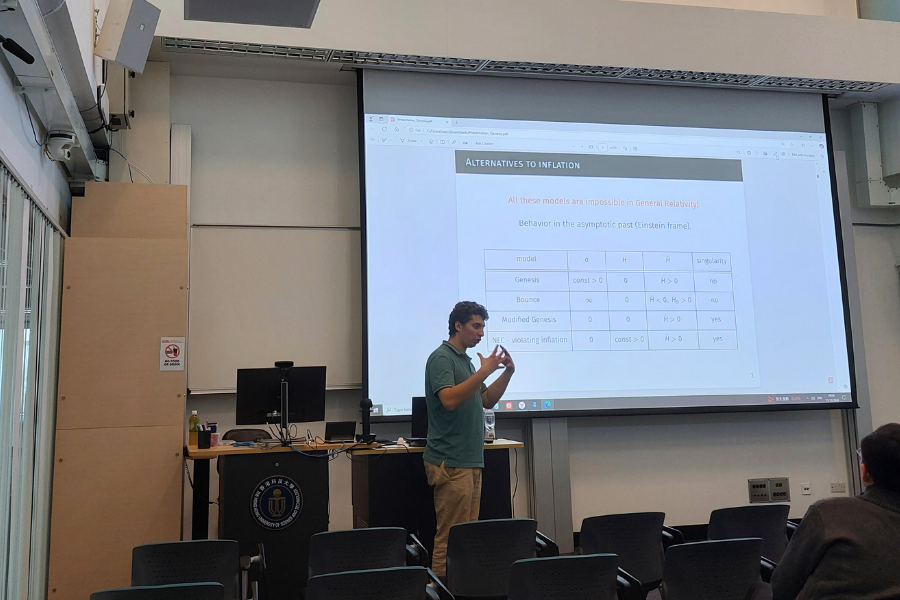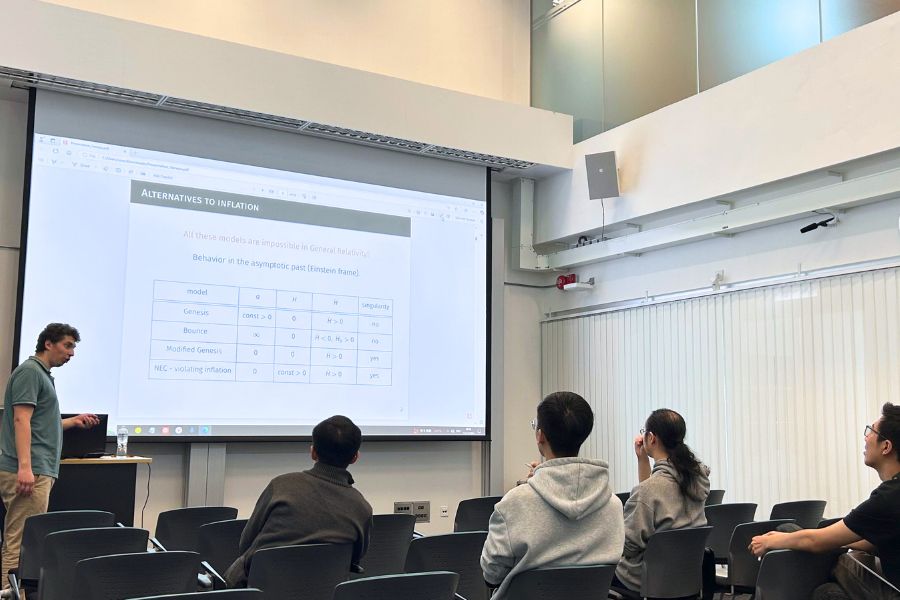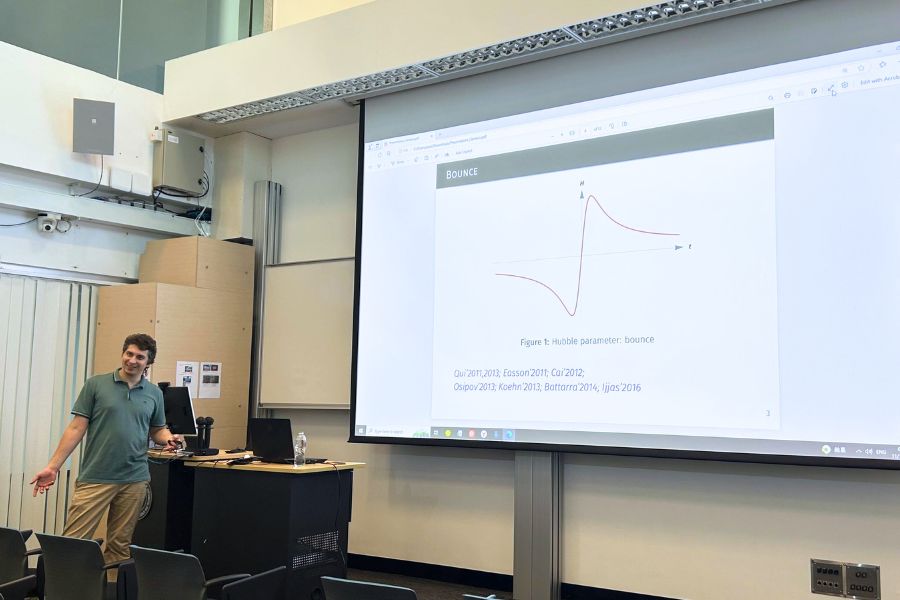Is Genesis Possible in the Framework of Horndeski Gravity?
Abstract
In scalar-tensor Horndeski theories, nonsingular cosmological models—Bounce and Genesis—are problematic because of potential ghost and/or gradient instabilities. One way to get around this obstacle is to send the effective Planck mass to zero in the asymptotic past (“strong gravity in the past”). One may suspect that this feature is a signal of a strong coupling problem at early times. However, the classical treatment of the cosmological background is legitimate, provided that the strong coupling energy scale remains at all times much higher than the scale associated with the classical evolution. After that observation we construct a novel model of Horndeski Genesis with strong gravity in the past. Within this model we show that the correct spectra of cosmological perturbations may be generated during the Genesis epoch. After that we discuss the tension between the experimental requirements for scalar spectrum index and the requirement of validity of the classical description. Nevertheless, we show that it is truly possible to obtain red-tilted spectrum and simultaneously generate perturbations in a controllable way, i.e. in the regime where the background evolution and perturbations are legitimately described within classical field theory and weakly coupled quantum theory, respectively.
About the Speaker
Dr. Pavel PETROV obtained his PhD in Physics from Institute for Nuclear Research (INR) of the Russian Academy of Sciences in 2024. His scientific supervisor was Prof. Valery RUBAKOV. Since 2024, Dr. Petrov has been a post-doc at IBS, Daejeon, CTPU-CGA (Institute for Basic Science; Center for Theoretical Physics of the Universe; Cosmology, Gravity and Astroparticle physics Group, Daejeon, South Korea).
About the Program
For more information, please refer to the program website at http://iasprogram.ust.hk/particle_theory.
For Attendees' Attention
-
Seating is on a first come, first served basis.






